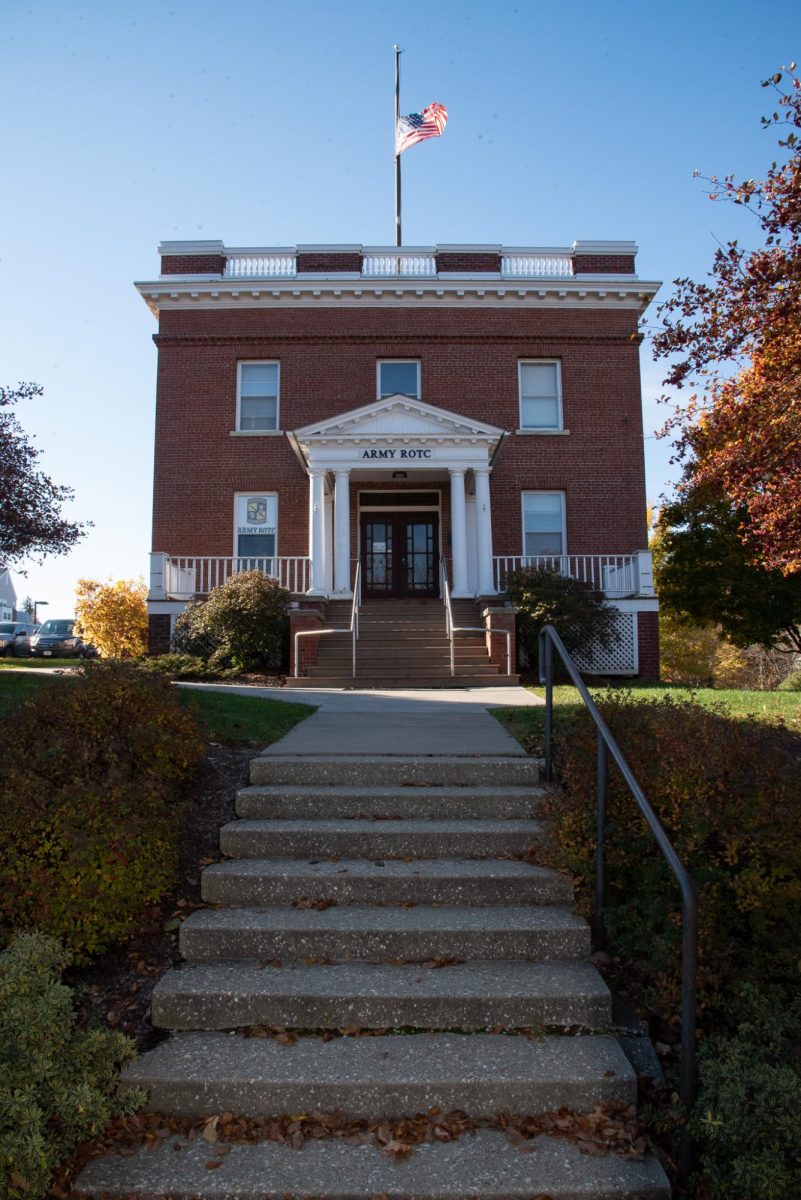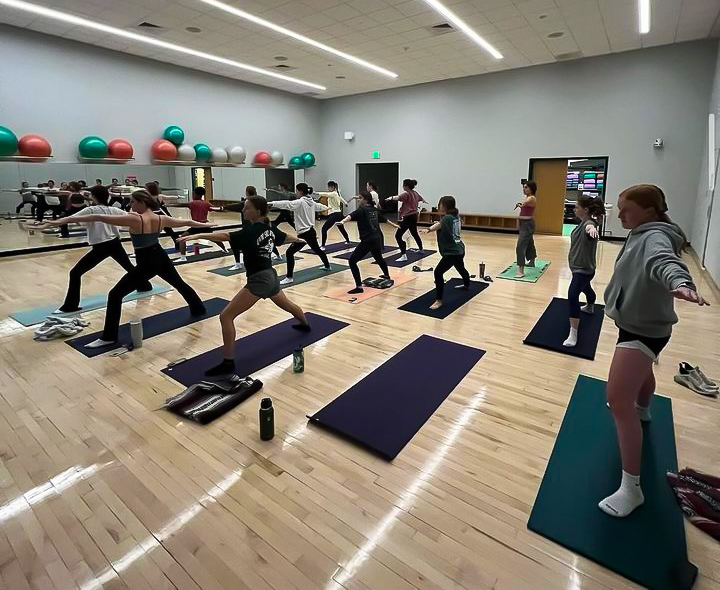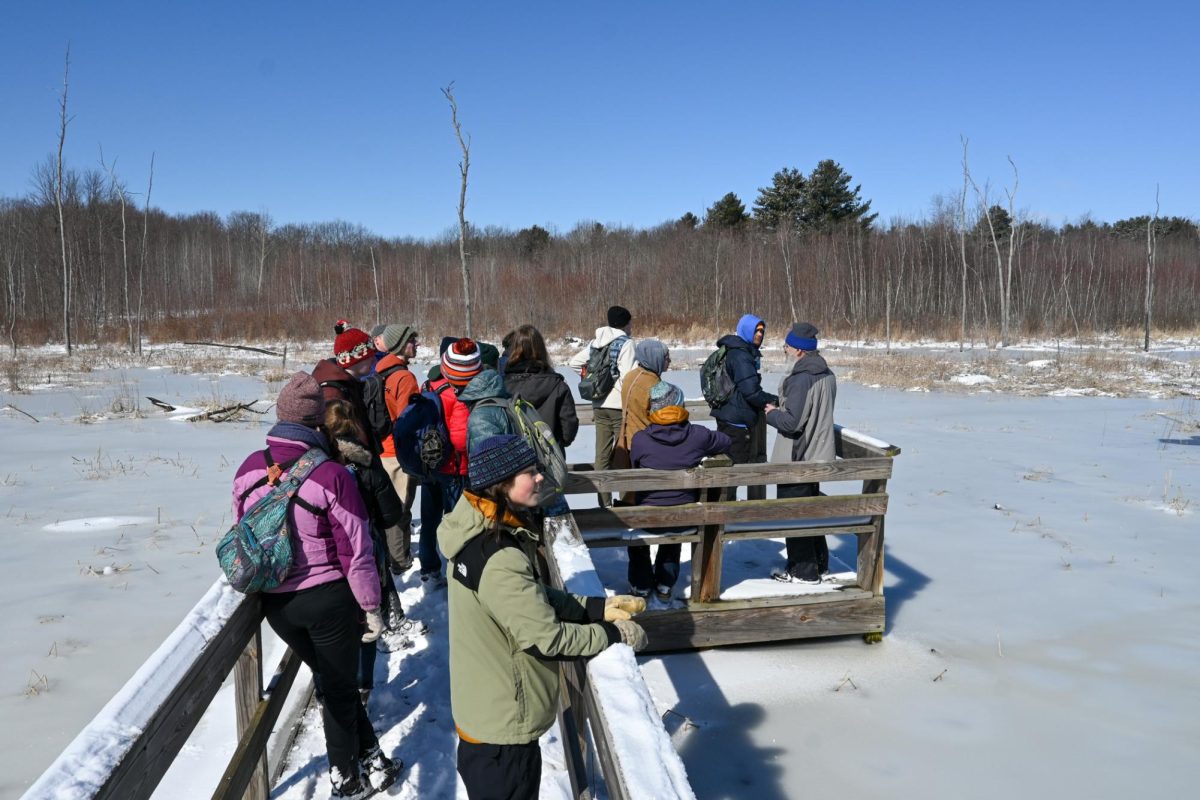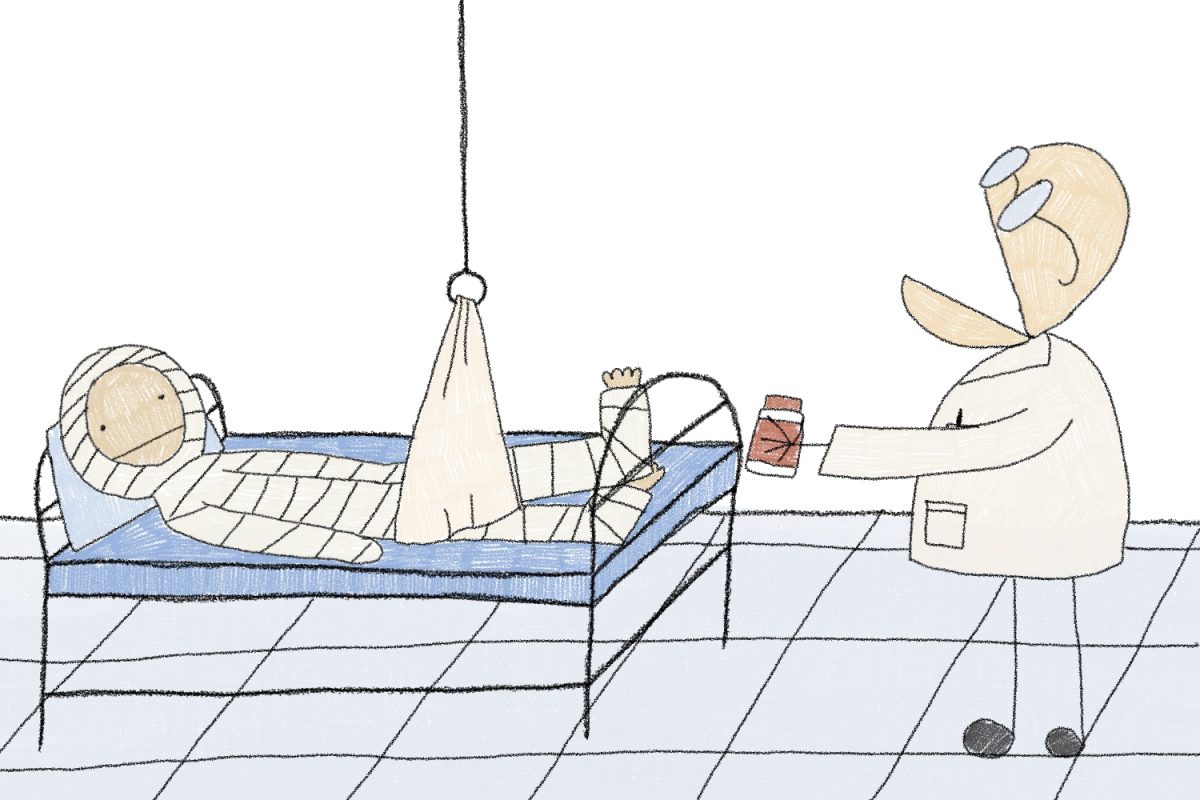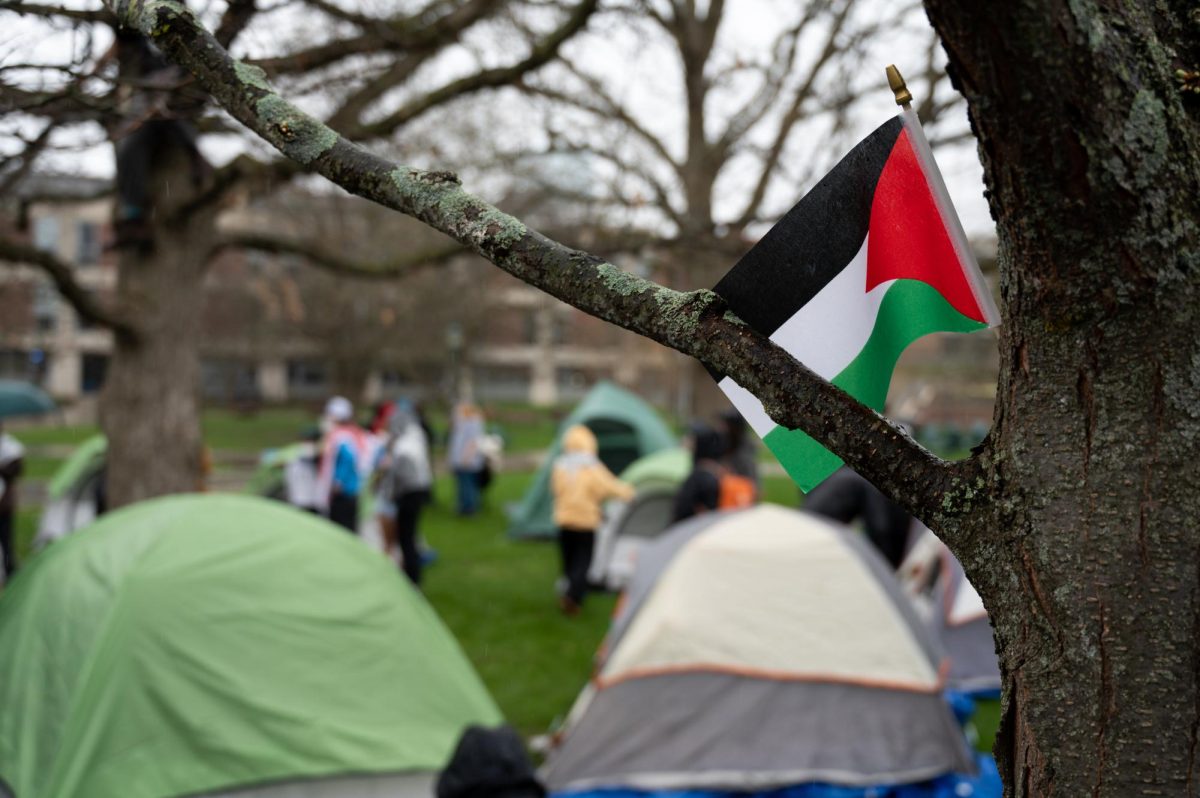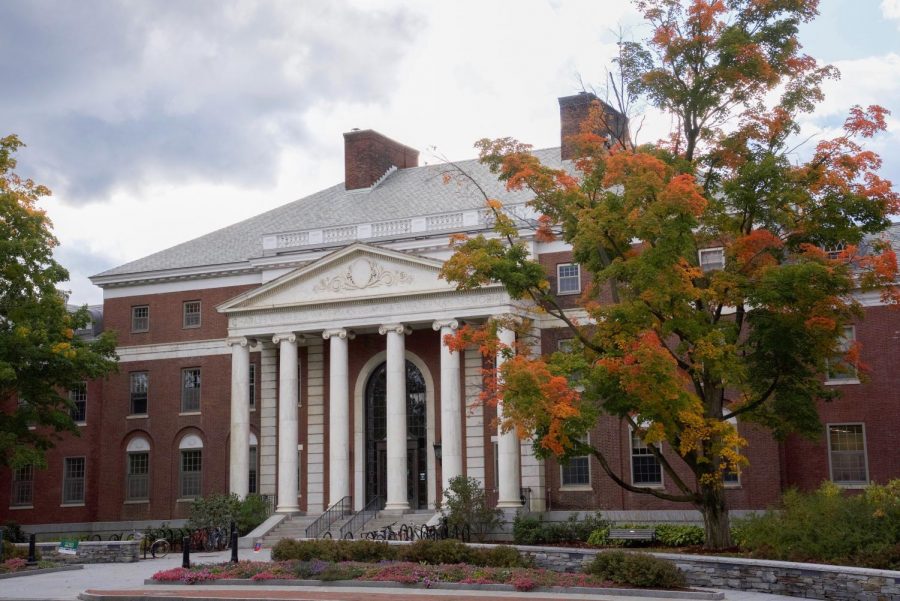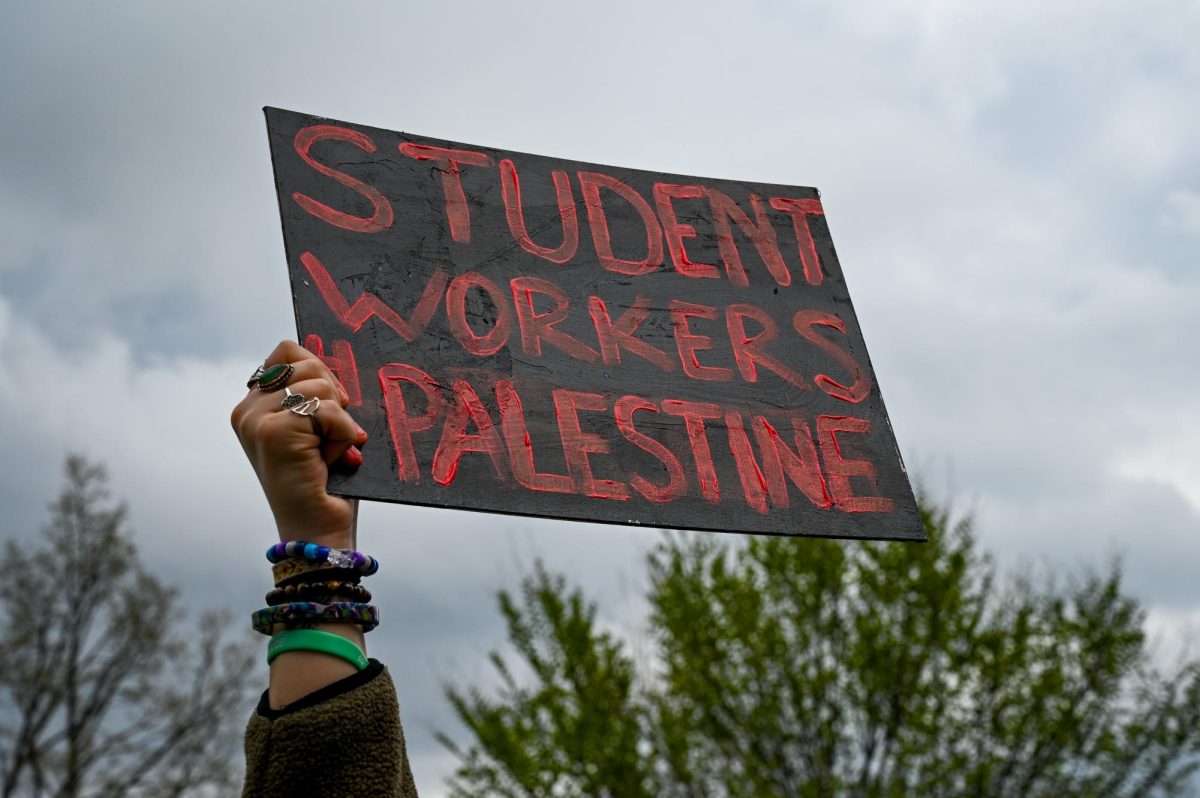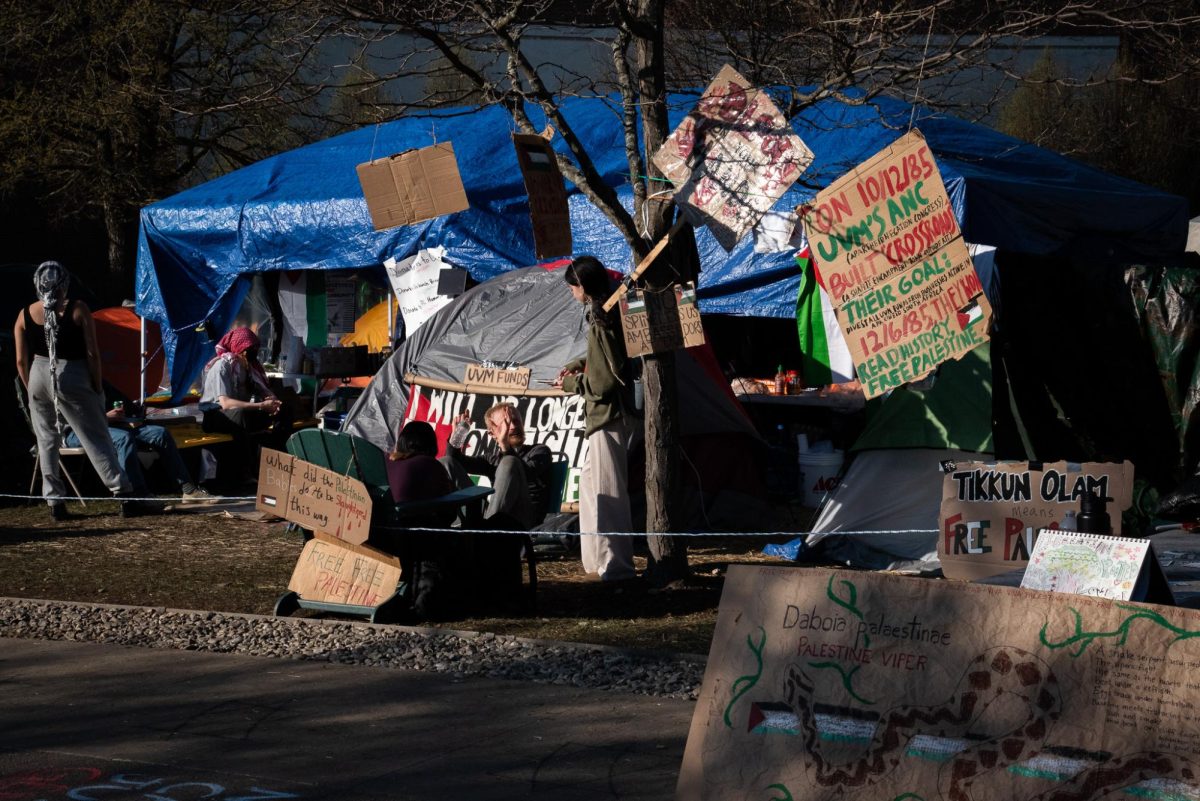Respect and pride in the U.S. military have long been seen as core American values. But many ROTC members fear that the “thank you for your service” culture they were taught to believe in may be shifting.
Sophomore Frances Darringer joined the Army Reserve Officer Training Corps, better known as the ROTC, as a first-year.
She said that, for her, it was a way to meet new people and stay disciplined with her exercise.
“I love physical activity. It keeps me happy and it keeps me motivated,” she said.
Though it was a massive time commitment, she felt connected to a community within the ROTC and hoped to land a scholarship, which would’ve covered her entire tuition, Darringer said.
However, Darringer made the tough decision to leave the ROTC after she learned the selective serotonin reuptake inhibitors she was prescribed made her ineligible to serve in the U.S. military, she said.
“It was difficult because I really liked the people there and it felt like the first time I was really kind of decent at something,” she said. “I felt like I could’ve been a good candidate.”
Officials expressed their sympathy, but said there was nothing they could do, she said.
“It was a lot of ‘We’re sorry. We don’t make the rules this is just how it is,’” Darringer said.
Every year, around 3,000 ROTC scholarships are awarded to incoming first-years and sophomores at colleges nationwide. These scholarships cover the entirety of tuition, along with supplying a monthly stipend. Housing and meal costs are waived for scholarship recipients, too, an anonymous ROTC member said.
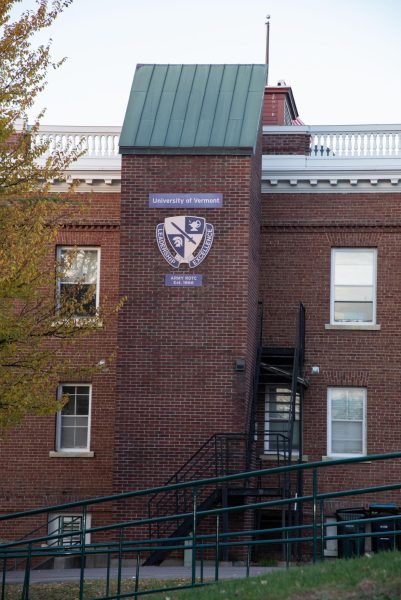
Upon graduating college, they are expected to serve either four years as full-time, active service Army officers followed by four years in the Inactive Ready Reserves, or serve six years as part-time officers followed by two years in the Inactive Ready Reserves, according to UVM’s ROTC website.
For many students, these scholarships are what make attending UVM possible, said an anonymous Army Reserves Captain, who participated in UVM’s ROTC for 4 years.
“The ROTC scholarship paid for everything for me—I had a three year scholarship,” he said. “I would not have been able to afford UVM without it.”
Cadets, the official title for ROTC program members, complete rigorous physical training three times a week while in college, as well as participate in additional weekend training exercises and take courses in military science, which cover topics including military tactics and leadership skills, according to UVM’s ROTC website.
“You have to treat it like a part time job,” the anonymous Captain said. “After college, it was also a lot more difficult because I still have to go to drill once a month, and I still have to go two weeks of training a year on top of my civilian job, which can be tough, but I have zero student debt right now.”
Since graduating, he has worked as a travel nurse while serving as an Army reserve nurse, which requires him to spend one weekend a month and a couple of weeks out of the year as a nurse in Army hospitals, the anonymous Captain said.
The stability of a military career after graduating college was another attractive feature of the ROTC, the anonymous ROTC member said.
“Since the end of my senior year of high school, I’ve basically had a guaranteed stable career for the next 30 years,” the member said. “I really like the idea of not having to worry about finding a job after college.”
Despite the financial incentives that exist for those who enlist in the military and the hundreds of millions of dollars poured into ad campaigns annually, all branches of the military have been falling short of their recruitment goals for over a decade.
The problem is only getting worse: in the Army, the gap between recruitment goals and enlistment numbers was 15,000 recruits wide in 2023—nearly 25%.
The pool of young adults who meet enlistment qualifications has shrunk, due in part to factors like recreational drug use, physical health and obesity. The legacy of the war in Afghanistan, as well as fears of discrimination, also played a role, according to Secretary of the Army Christine Wormuth in an Oct. 5 NPR interview.
As rates of mental health concerns among teenagers continue to rise, Darringer hopes the military will rethink their approach to psychiatric medication.
“Would you rather have somebody who has severe anxiety not being medicated be in the military or be medicated and be in the military?” Darringer said. “I think they just need to rethink those kinds of things.”
Directly after the attacks on the U.S. on Sept.11th, 2001, there was a massive spike in enlistment—over 180,000 Americans became active duty members, and more than 70,000 enlisted in the reserves.
But for Gen Z, the impact of these events on their lives and political perceptions differs significantly.
“I think, just because we’ve grown up post 9/11, we haven’t really had as much of a motivating factor. We haven’t as a generation been like, ‘oh, shit, let’s serve the country,’” said junior Amelia Abernathy, a former ROTC member.
Unlike previous generations, those who witnessed stories of triumphant American victory, Gen Z’s view of the U.S. military has been shaped by the troubled and controversial legacy of decades-long wars in Afghanistan and Iraq.
In Afghanistan alone, the costs—in dollars and in lives—were staggering, said Dominic Tierney, the political science chair at Swarthmore College, in an Aug. 18, 2021 interview with Time magazine. “Two-and-a-half-thousand Americans dead, 20,000 injured, a trillion dollars or more expended, and for what? The Taliban has now, it looks like, returned to power,” he said.
As the 9/11 terrorist attacks become more and more distant in the minds of Americans, many have questioned the purpose of these costly wars.
”The further we get from September 11th, it’s not so obvious to many American civilians what the point of the conflict was,” said Nicole Phelps, professor of history at UVM.
“That raises questions, like ‘why would you go into the military, when you’ll be deployed overseas doing some kind of fighting, but we may not have a good reason for being there?’” she said.
Joining the military in the wake of these wars has been a complex experience for the anonymous Captain and his Army cohort.
“I don’t think any of us fully understood why we were there and why we were involved in that which I think is pretty common across the country,” he said.
Gen Z is significantly less likely to support militaristic foreign policy approaches than other generations. They also showed the lowest level of confidence in the military as an institution, according to a March 2023 report from the Chicago Council on Global Affairs.
Phelps says that part of this divide may stem from the disconnect many Americans have with the military, as factors like the oversaturation of news and changes in war technology make it easier for civilians to remain in the dark.
“The military has put so much emphasis on technology, and particularly on air technology, so airplanes and bombings,” she said. “That kind of combat minimizes the loss of American soldiers, and fewer dead soldiers means less civilian attention and less civilian complaints at home.”
These attitudes aren’t exclusive to civilians, though.
“As we grew older and more mature and we gained more knowledge about the military, some of us grew slightly more pessimistic, ” the anonymous Captain said. “Ultimately, I think we’re all just kind of hoping that nothing goes down and nothing has to happen, where we’d have to go fight some war that we don’t fully understand.”
He has noticed this cynicism to be particularly noticeable among younger, newer soldiers.
“I would say that I have been in charge of many soldiers, the lower enlisted, who feel like they got duped into joining,” the anonymous Captain said. “It seems like it’s a pretty even split between people who had a great time and who had a terrible time.”
Gen Z’s attitudes towards the military have left ROTC members at the forefront of a complex generational shift.
Wednesdays are “uniform days” for cadets, the anonymous ROTC member said.
“I feel so weird walking around, because there’s just like so many eyes on me,” he said. “Specifically on uniform days, I always try to be really nice to people.”
With their military involvement on display, these days can bring the divide between ROTC members and some of their peers to the surface.
“We had this chick in math class—apparently her group of friends would always take pictures. They had this whole folder on their phone,” Abernathy said.
For younger cadets, notions of pride in one’s military service have become more complex amid heightened levels of criticism of the U.S. military. The anonymous member wants his peers to challenge their views of the U.S. military, he said.
“My main goal is when I’m not in the Army uniform, I don’t want people to know that I’m in the Army,” the anonymous ROTC member said. “I want them to see me as a person first before they see me as a soldier.”


